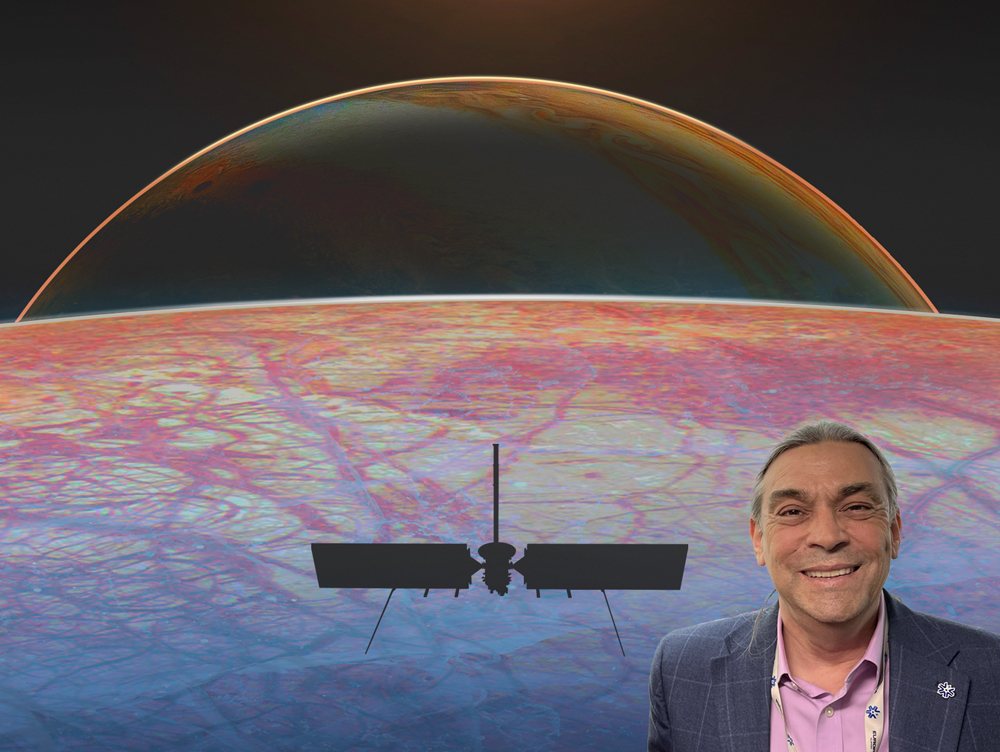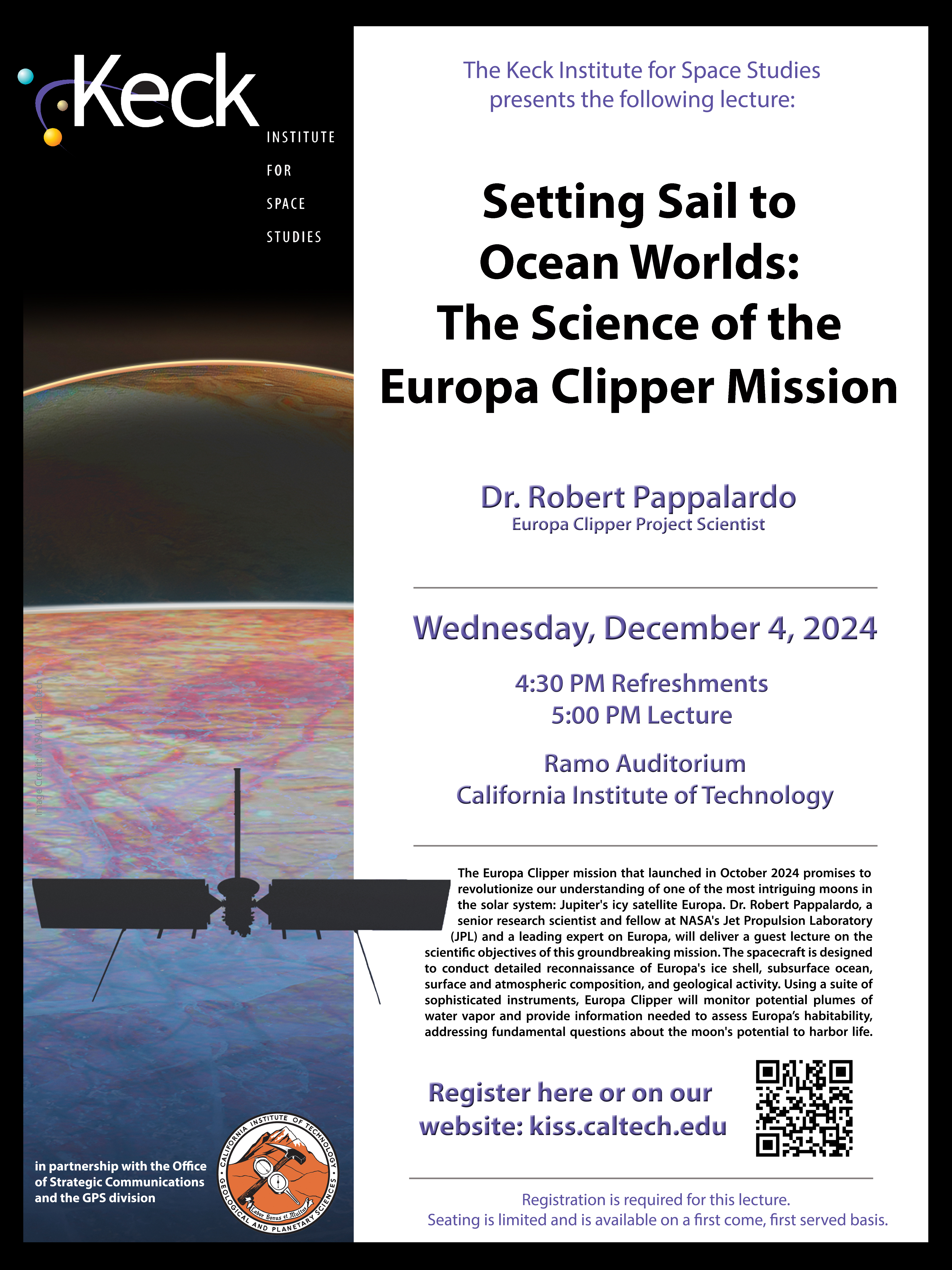

Setting Sail to Ocean Worlds: The Science of the Europa Clipper Mission
Speaker: Dr. Robert Pappalardo
Europa Clipper Project Scientist
Wednesday, December 4, 2024
4:30 P.M. Reception
5:00 P.M. Lecture
Ramo Auditorium, California Institute of Technology
Abstract:
The Europa Clipper mission that launched in October 2024 promises to revolutionize our understanding of one of the most intriguing moons in the solar system: Jupiter's icy satellite Europa. Dr. Robert Pappalardo, a senior research scientist and fellow at NASA's Jet Propulsion Laboratory (JPL) and a leading expert on Europa, will deliver a guest lecture on the scientific objectives of this groundbreaking mission. The spacecraft is designed to conduct detailed reconnaissance of Europa's ice shell, subsurface ocean, surface and atmospheric composition, and geological activity. Using a suite of sophisticated instruments, Europa Clipper will monitor potential plumes of water vapor and provide information needed to assess Europa’s habitability, addressing fundamental questions about the moon's potential to harbor life.
Dr. Pappalardo will also explore how Europa Clipper's findings may enhance our understanding of icy moons across the solar system. He will discuss the mission's implications for astrobiology, as Europa's ocean is considered one of the most promising places to search for extraterrestrial life. The mission’s highly anticipated data will not only help determine if Europa could support life but will also provide insight into the formation and evolution of icy worlds, offering critical clues about the broader processes that shape planetary systems.
Speaker's Biography:
Robert Pappalardo is a Project Scientist, JPL Fellow, and Senior Research Scientist in the Planetary Science Section of JPL’s Science Division. In 1986 he received his B.A. in Geological Sciences from Cornell University, and in 1994 he obtained his Ph.D. in Geology from Arizona State University. As an affiliate member of the Galileo Imaging Team while a researcher at Brown University, he worked to plan many of the Galileo observations of Jupiter's icy Galilean satellites. From 2001-2006, he was an Assistant Professor of Planetary Sciences in the Astrophysical and Planetary Sciences Department of the University of Colorado at Boulder, and he continues to mentor graduate student and postdoctoral researchers. Science communications being a priority, he has worked with a variety of organizations to bring the excitement of planetary exploration to the public.

.jpg)